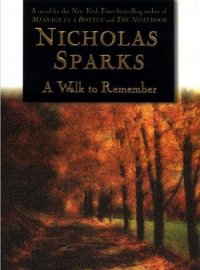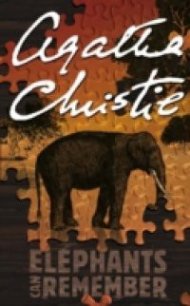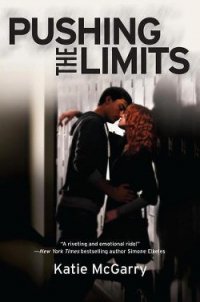Winter Fire - Landis Geoffrey Alan (читать книги полные .txt) 📗
I did not realize it at the time, for a child sees little, but with antiquated equipment and patched-together artillery, my besieged city clumsily and painfully fought back. For every fifty shells that came in, one was fired back at the attackers.
There was an international blockade against selling weapons to the Resurgence, but that seemed to make no difference. Their weapons may not have had the most modern of technology, but they were far better than ours. They had superconducting coilguns for artillery, weapons that fired aerodynamically-shaped slugs-we called them birds-that maneuvered on twisted arcs as they moved. The birds were small, barely larger than my hand, but the metastable atomic hydrogen that filled them held an incredible amount of explosive power.
Our defenders had to rely on ancient weapons, guns that ignited chemical explosives to propel metal shells. These were quickly disassembled and removed from their position after each shot, because the enemy’s computers could backtrail the trajectory of our shells, which had only crude aeromaneuvering, to direct a deadly rain of birds at the guessed position. Since we were cut off from regular supply lines, each shell was precious. We were supplied by ammunition carried on mules whose trails would weave through the enemy’s wooded territory by night and by shells carried one by one across dangerous territory in backpacks.
But still, miraculously, the city held. Over our heads, the continuous shower of steel eroded the skyline. Our beautiful castle Hohensalzburg was sandpapered to a hill of bare rock; the cathedral towers fell and the debris by slow degrees was pounded into gravel. Bells rang in sympathy with explosions until at last the bells were silenced. Slowly, erosion softened the profiles of buildings that once defined the city’s horizon.
Even without looking for the craters, we learned to tell from looking at the trees which neighborhoods had had explosions in them. Near a blast, the city’s trees had no leaves. They were all shaken off by the shock waves. But none of the trees lasted the winter anyway.
My foster father made a stove by pounding with a hammer on the fenders and door panels of a wrecked automobile, with a pipe made of copper from rooftops and innumerable soft-drink cans. Floorboards and furniture were broken to bits to make fuel for us to keep warm. All through the city, stovepipes suddenly bristled through exterior walls and through windows. The fiberglass sides of modern housing blocks, never designed for such crude heating, became decorated with black smoke trails like unreadable graffiti, and the city parks became weirdly empty lots crossed by winding sidewalks that meandered past the craters where the trees had been.
Johann’s wife, my foster mother, a thin, quiet woman, died by being in the wrong building at the wrong time. She had been visiting a friend across the city to exchange chat and a pinch of hoarded tea. It might just as easily have been the building I was in where the bird decided to build its deadly nest. It took some of the solidity out of Johann. "Do not fall in love, little Leah," he told me, many months later, when our lives had returned to a fragile stability. "It hurts too much."
In addition to the nearly full-time job of bargaining for those necessities that could be bargained for, substituting or improvising those that could not, and hamstering away in basements and shelters any storable food that could be found, my foster father Johann had another job, or perhaps an obsession. I only learned this slowly. He would disappear, sometimes for days. One time I followed him as far as an entrance to the ancient catacombs beneath the bird-pecked ruins of the beautiful castle Hohensalzburg. When he disappeared into the darkness, I dared not follow.
When he returned, I asked him about it. He was strangely reluctant to speak. When he did, he did not explain, but only said that he was working on the molecular still, and refused to say anything further, or to let me mention it to anyone else.
As a child, I spoke a hodgepodge of languages; the English of the foreigners, the French of the European Union, the Japanese that my parents had spoken at home, the book-German of the schools, and the Austrian German that was the dominant tongue of the culture I lived in. At home, we spoke mostly German, and in German, "Still" is a word which means quietude. Over the weeks and months that followed, the idea of a molecular still grew in my imagination into a wonderful thing, a place that is quiet even on the molecular level, far different from the booming sounds of war. In my imagination, knowing my foster father was a gentle man who wanted nothing but peace, I thought of it as a reverse secret weapon, something that would bring this wonderful stillness to the world. When he disappeared to the wonderful molecular still, each time I would wonder whether this would be the time that the still would be ready, and peace would come.
And the city held. " Salzburg is an idea, little Leah," my foster father Johann would tell me, "and all the birds in the world could never peck it away, for it lives in our minds and in our souls. Salzburg will stand for as long as any one of us lives. And, if we ever abandon the city, then Salzburg has fallen, even if the city itself still stands."
In the outside world, the world I knew nothing of, nations quarreled and were stalemated with indecision over what to do. Our city had been fragilely connected to the western half of Europe by precarious roads, with a series of tunnels through the Alps and long arcing bridges across narrow mountain valleys. In their terror that the chaos might spread westward, they dynamited the bridges, they collapsed the tunnels. Not nations, but individuals, did it. They cut us off from civilization, and left us to survive, or die, on our own.
Governments had become increasingly unimportant in the era following the opening of the resources of space by the free-trade zones of the new prosperity, but the trading consortia that now ruled America and the far east in the place of governments had gained their influence only by assiduously signing away the capacity to make war, and although the covenants that had secured their formation had eroded, that one prohibition still held. Only governments could help us, and the governments tried negotiation and diplomacy as Dragan Vukadinovi?c made promises for the New Orthodox Resurgence and broke them.
High above, the owners of the sky-cities did the only thing that they could, which was to deny access to space to either side. This kept the war on the ground, but hurt us more than it hurt the armies surrounding us. They, after all, had no need for satellites to find out where we were.
To the east, the Pan-Slavic army and the New Orthodox Resurgence were pounding against the rock of the Tenth Crusade; further south they were skirmishing over borders with the Islamic Federation. Occasionally the shelling would stop for a while, and it would be safe to bring hoarded solar panels out into the sunlight to charge our batteries-the electric grid had gone long ago, of course-and huddle around an antique solar-powered television set watching the distant negotiating teams talk about our fate. Everybody knew that the war would be over shortly; it was impossible that the world would not act.
The world did not act.
I remember taking batteries from wrecked cars to use a headlight, if one happened to survive unbroken, or a taillight, to allow us to stay up past sunset. There was a concoction of boiled leaves that we called "tea," although we had no milk or sugar to put in it. We would sit together, enjoying the miracle of light, sipping our "tea," perhaps reading, perhaps just sitting in silence.
With the destruction of the bridges, Salzburg had become two cities, connected only by narrow-beam microwave radio and the occasional foray by individuals walking across the dangerous series of beams stretched across the rubble of the Old Stone Bridge. The two Salzburgs were distinct in population, with mostly immigrant populations isolated in the modern buildings on the east side of the river, and the old Austrians on the west.




